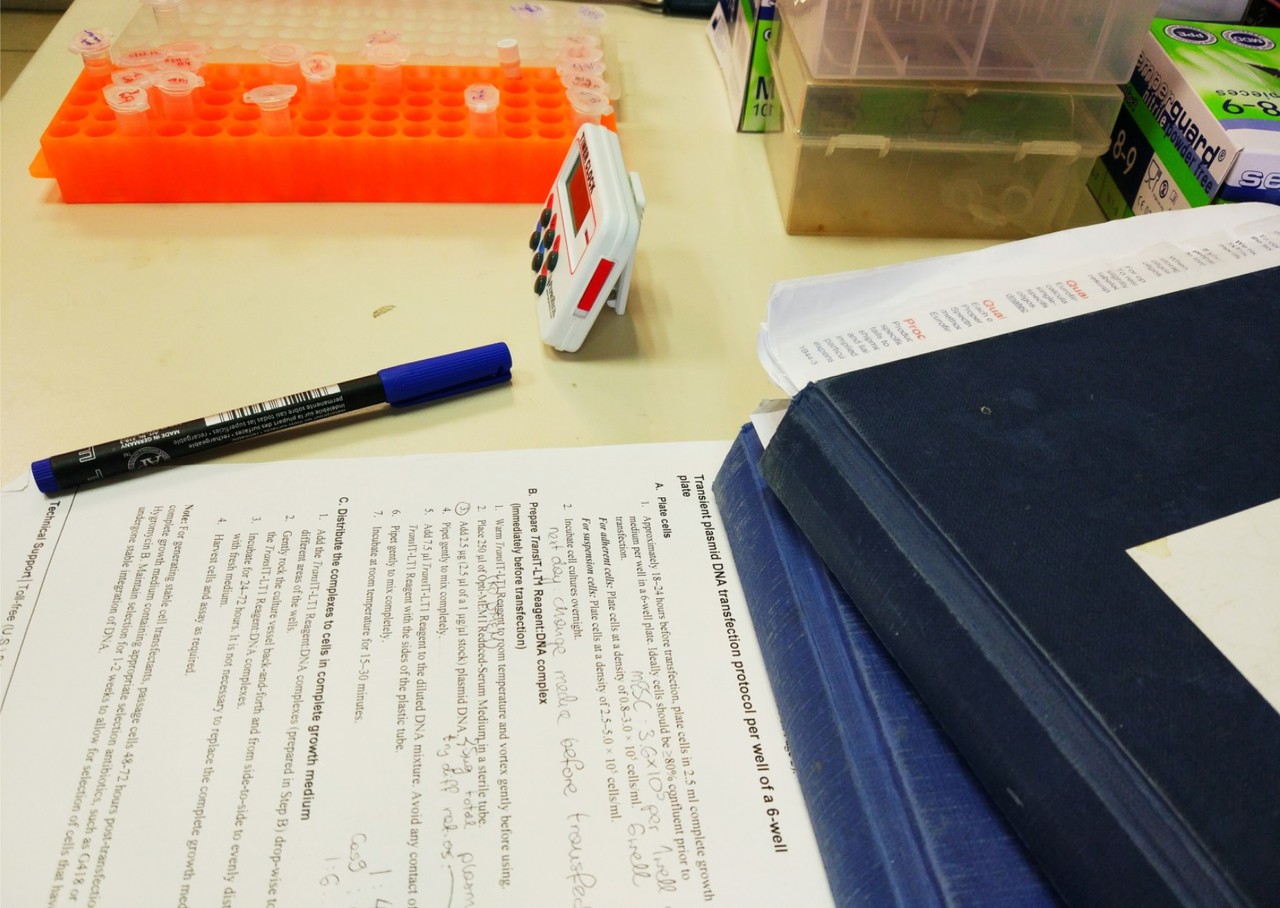Preparing the next generation – How to be a good mentor to a new student at the lab

We’ve all been there: coming for the first time to a new lab – for a project as an undergrad, or for starting a Masters or a PhD. Everything is new. You are not sure about the working procedures, or where you can find everything. You feel lost.
As a PhD student at the lab, we are occasionally required to instruct and even to mentor a new student. This can be a frustrating, time-consuming and exhausting job. But, if done correctly it can be a very rewarding and beneficial task, and an asset to our training as a scientist.
Start from the beginning
Assume your trainee comes with no prior knowledge. You don’t want to leave any gaps in understanding at the beginning, so it is better to go briefly over basic background than to leave unresolved issues.
In practice:
- Find one or two good basic reviews and two or three basic fundamental papers of the lab topic, which will be the basic knowledge everyone in the lab should know in order to be able to understand the “language” of the lab. Have this short list ready for all students you will mentor in the future.
- Give the trainee a short tour of the lab, showing the important equipment. Sometimes even a microscope or an Elisa reader can be totally unfamiliar for a new member.
- Present the overall goal of the lab and make a flowchart of the common types of experiments usually done at the lab.
Re-write the protocols
Training in techniques such as cloning, tissue culture or any other protocols routinely done in your lab can be done in four steps-
- Give the protocol you are going to perform to the trainee in advance.
- Show the trainee how you perform it, including all your small tricks. Ask the trainee to write on the original protocol all the clarifications and tips that are required in order to perform the protocol as you did it.
- Let the trainee do the protocol, while you are watching, using the improved protocol with all the comments.
- Ask the trainee to insert all the comments that helped him perform the protocol properly to the protocol file. The next trainee will start with a clearer protocol and so on.
Give small tasks
In order to be able to let go of your trainee’s hand as soon as possible, you should give him small tasks. A few examples:
1. A reading task – especially for undergraduate students who may have no experience in reading scientific papers. Define a specific narrow question from your field, which will require searching for relevant papers and looking briefly at the figures in order to find the answer. The ability to find valuable information, without reading a full paper from top to bottom, is not to be taken for granted.
2. Finding a new protocol – If you need to improve a protocol or to try something new that wasn’t done in the lab before, this can be a great task for a new member – to look it up himself in papers and forums or ask colleagues in nearby labs.
3. Making the calculations – after explaining the idea of for example a dilution you need to do, let your trainee do the calculation on his own. Later, check it yourself of course.
What’s in it for me?
There are many advantages in instructing a new lab member, for your PhD work itself and for your ongoing training. Here are a few:
1. Arranging your own project – In order to instruct in the lab, you have to have all protocols arranged, a flowchart of your work, your goals simply worded, etc. If you don’t have all of these, having a trainee will force you to do it and it will be very useful for your project itself.
2. Straighten the knowledge and work habit, developing a valuable lab member – Your today's trainee is your tomorrow's colleague. It will make your life easier knowing the new member at the lab understands your project and may contribute to it in the future – and more importantly that his work habits are as you expect and no major contaminations and disasters are expected.
3. Training on the way to becoming a Principal Investigator (PI) – During our long and stressful path to establishing our own lab, we are measured mainly for our scientific success and publications. Of course as a PI, mentoring students will be a major part of our work and a significant factor in the success of a lab. Every opportunity to improve this skill is highly valuable for our future.





Join the FEBS Network today
Joining the FEBS Network’s molecular life sciences community enables you to access special content on the site, present your profile, 'follow' contributors, 'comment' on and 'like' content, post your own content, and set up a tailored email digest for updates.